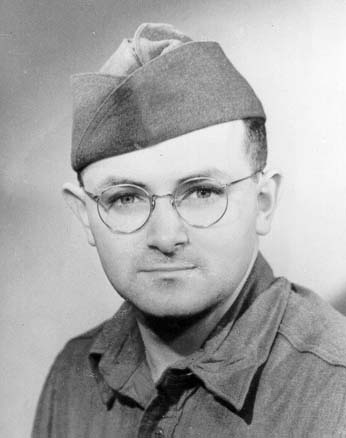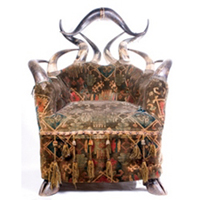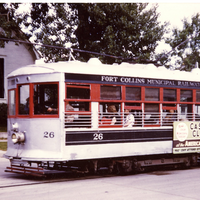Not-So-Happy Trips Home for Displaced Persons, a W.W.II Memoir
Not-So-Happy Trips Home for Displaced Persons, a W.W.II Memoir
Leo Cefkin
January 26, 1995
Interviewer: Rheba Massey
"My stay in Austria was noteworthy also for an experience with Displaced Persons. (DP's)
In June of 1945, our Company left Tulfes and was moved to the city of Hall on the Inn River. Hall is about 100 km east of Innsbruck. Our duties were the management of barracks which were used for the housing and care of DP's brought together by national policies to await transportation for their return home. We had French, Italian and others come through our facility. Most memorable was the assembly of Soviet citizens. Given my ancestry (American born to Russian Jewish parents), I paid special attention to them. A Soviet officer had been assigned to help us manage the return of this group to the Soviet Union. They were a surprisingly diverse group - Ukrainians, Russians, Bessarabians (some I suspected were Jewish - a few women, claiming to speak German could communicate better with Sidney Freedman who spoke with them in Yiddish, than with me, as I spoke German. I did better too when I switched to Yiddish.) There were Buryat Mongolians, Turkoniens, Uzleks and other non-Soviet elements.
In my conversations speaking German, Yiddish and what little Russian that I knew, I stressed that soon they'd be going home to happy reunions . . . Often that encouraging prospect elicited cool responses.
Finally the 'happy' day arrived. The DP's were to parade down to the railroad depot and get into boxcars for their journey home. We anticipated a happy, exuberant march down to the train. It was nothing of the sort.
A large number of DP's, particularly among the Ukrainians, refused to go. They wanted to stay. We were forcing them to leave. Somehow a few pistols appeared and we had fatalities, people shooting because they refused to go back. Nevertheless, we coerced their departure despite resistance from the DP's.
(A review of the press and reportage about Soviet DP's would show that my experience was not an isolated case. The experience left a deep impression on my thinking about the Soviet Union, about Stalin, and the Communist party leadership. The antipathy of Soviet peoples to their government was a big surprise and unexpected. This was a time when I used to lead discussions within the Company an hour a day as part of the Army's Information and Education (I&E ) program, each period based on Army I&E handouts which often stressed unity with our allies, particularly the USSR in building together a postwar peace. What about the USSR, the "benevolent" Joe Stalin?)
Dr. Cefkin served for many years as Chairman of the C.S.U. Political Science Department.


Preserving the history of Fort Collins, Colorado & the Cache la Poudre region






